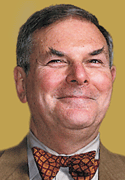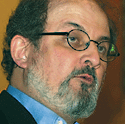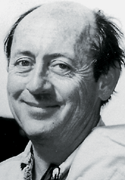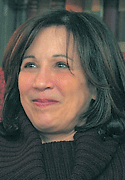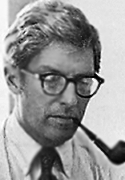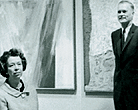
 |
||
The Yale Alumni Magazine is owned and operated by Yale Alumni Publications, Inc., a nonprofit corporation independent of Yale University. The content of the magazine and its website is the responsibility of the editors and does not necessarily reflect the views of Yale or its officers. |
In September, the Center for British Art gets a new director with an eye for the natural. Amy Meyers '85PhD, who is currently the curator of American art at the Henry E. Huntington Library, Art Collections, and Botanical Gardens in San Marino, California, is an authority on British and American naturalist illustrators. She will teach in the history of art department at Yale. She will succeed acting director Constance Clement, who has run the BAC since Patrick McCaughey left last summer.
The Lower Manhattan Development Corporation has chosen Alexander Garvin '62, ‘67MArch, a longtime adjunct professor at Yale and authority on urban redevelopment, to oversee the reconstruction of the World Trade Center site. Garvin (see “A Man With Plans,” May 2001), who has taught the popular “Study of the City” course at Yale for 35 years, has worked in both the private and public sectors in New York during his career. Most recently, he has led the design component of New York City’s bid to host the 2012 Olympic Games.
The Law School Auditorium was not big enough to hold the crowd that lined up down Wall and York streets to hear Salman Rushdie give this year’s Tanner Lecture on February 25. Some 800 people attended the lecture when it was hastily moved to Battell Chapel. Titled “Step Across This Line,” the novelist’s talk centered on the real and metaphorical borders that were crossed in last fall’s terrorist attacks, calling the postSeptember 11 world a “frontier” that “shapes our character and tests our mettle.”
When asked how one becomes U.S. Poet Laureate, Billy Collins said, “God appears in the form of the Librarian of Congress.” Collins entertained the crowd at a Jonathan Edwards talk on February 7 with words that, he said, “attempt to ride the wobbly line between seriousness and humor.” Not until he reached his forties, said Collins, did he finally write poetry that sounded like himself and no one else. As laureate, his primary project is “Poetry 180,” which encourages high schools to make poetry a part of daily life. “I’m also lobbying to make Poet Laureate a lifetime appointment,” he said.
At a Davenport College master’s tea on February 11, New York Times science reporter Gina Kolata discussed her career, the worldwide influenza epidemic of 1918 (the subject of her most recent book), and the importance of the “dinner-table test” in determining how well she’s reached her audience. “If eyes glaze over, you’ve failed,” said Kolata, who also talked about the controversy over the usefulness of mammography in preventing breast cancer. “This is a place in which science and politics have collided,” she said, “and so far, politics has carried the day.”
Both town and gown mourned the passing of Charles “Newt” Schenck '44 on February 14. Schenck, a partner in the New Haven law firm of Wiggin & Dana, was the consummate community leader, active on the boards of local institutions and instrumental in the creation of the Audubon Arts District and the Ninth Square redevelopment. A World War II veteran who was captured by (and escaped from) the Germans at the Battle of the Bulge, Schenck was remembered by a friend as “the best exemplar of our generation.” Close-Up In January, two important collectors of 20th-century art died just three weeks apart after lifetimes of support for Yale and the arts. Susan Morse Hilles, who collected works by Robert Rauschenberg, Helen Frankenthaler, Alexander Calder, and others, died on January 1 at the age of 96 in Boston. Richard Brown Baker '35, who bequeathed three quarters of his 1,600-work collection to Yale, died on January 22 in Shelburne, Vermont, at the age of 89.
It was not the first time that the names of Baker and Hilles had been linked. In 1963, early in their respective careers as collectors, the Art Gallery mounted an exhibition with works from their holdings. The show concentrated on their specialties—recent, less familiar work by living artists—and was conceived, as Baker put it, “to wake New Haven up.” Hilles, who was the widow of the late Yale English professor Frederick Whiley Hilles '22, was a longtime New Haven resident whose patronage touched not just Yale but institutions throughout the city. Baker, who lived in New York City and in Vermont, was a former Rhodes Scholar who worked for the Office of Strategic Services and the Central Intelligence Agency during and after World War II. Both Hilles and Baker were recipients of the Yale Medal. |
|
|
|
|
|
|
|
|
©1992–2012, Yale Alumni Publications, Inc. All rights reserved. Yale Alumni Magazine, P.O. Box 1905, New Haven, CT 06509-1905, USA. yam@yale.edu |
||

